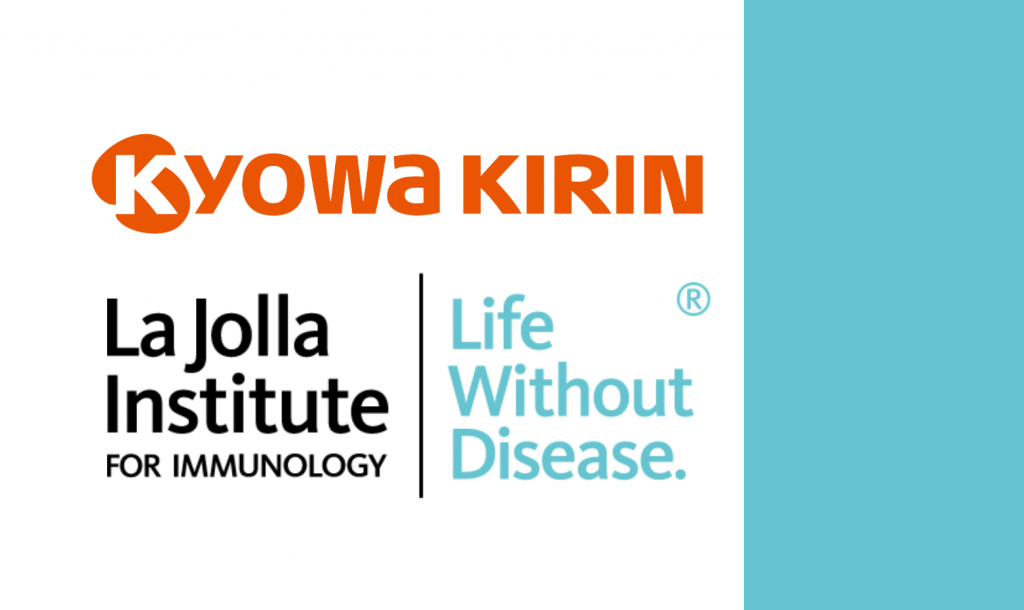LA JOLLA, CA — Scientists at La Jolla Institute for Immunology (LJI) investigate the inner workings of the immune system. Their research has revealed how immune cells behave in many diseases—from cancers to infectious, autoimmune, and allergic diseases—and paved the way for life saving vaccines and therapies.
A recent Phase 2b clinical trial for patients with atopic dermatitis, the most common form of eczema, is the latest clinical effort based on LJI science to show the potential to improve human health.
The Phase 2b trial, led by Japanese pharmaceutical company Kyowa Kirin Co., Ltd., was a multicenter, randomized, double-blind, placebo-controlled trial focused on the efficacy and safety of an experimental monoclonal antibody treatment targeting OX40 called rocatinlimab (KHK4083/AMG 451) in adults with moderate-to-severe atopic dermatitis (not adequately controlled with topical agents). As the researchers reported, rocatinlimab showed the potential to yield long-lasting improvements for adult patients with moderate-to-severe atopic dermatitis. Phase III studies to evaluate long-term efficacy and safety are currently underway.
[Read the Kyowa Kirin announcement]
The development of a therapeutic monoclonal antibody targeting OX40 was first proposed by LJI Professor Michael Croft, Ph.D., member of the LJI Center for Autoimmunity and Inflammation, under a drug discovery program run by LJI. The proposal moved forward under Kyowa Kirin thanks to the strong collaboration established between LJI and Kyowa Kirin when the Institute was first founded in 1988.
“It is extremely gratifying that the work we did has been translated to humans and to inflammatory disease,” says Croft.
Croft joined the LJI faculty in 1996. He specializes in studying molecules that are members of the tumor necrosis factor (TNF) and tumor necrosis factor receptor (TNFR) family. This group of proteins may help the body guard against harmful microorganisms, but Croft’s work has shown they can also contribute to the inflammation underpinning diseases such as asthma, idiopathic pulmonary fibrosis, scleroderma, atopic dermatitis, and others. One important TNF receptor molecule is OX40, which works by binding its partner called OX40 ligand. OX40 is termed “a costimulatory molecule” and is expressed on activated CD4 “helper” T cells and CD8 “killer” T cells—which can be pathogenic in driving inflammatory diseases.
Between 1997 and 2000, Croft’s laboratory conducted a number of pivotal non-clinical studies into the roles of OX40 and OX40L. His laboratory worked to understand the fundamental activity of these molecules in controlling T cells and how manipulating these molecules might be useful for immune-mediated diseases. This research from Croft and his colleagues (published between 1998 and 2003) was the first to show how OX40 enhances T cell proliferation and the accumulation of greater numbers of these important cells, and how OX40 promotes the development of T cell memory. Studying these T cell processes was critical for understanding exactly how immune cells drive harmful inflammation. The Croft laboratory also demonstrated how OX40 signals promote the long-term survival and reactivity of the memory T cells that cause allergic inflammation relevant for the persistence of asthma and atopic dermatitis.
“Those papers showed the potential of targeting OX40 and its binding partner,” says Croft. “There was the possibility to suppress allergic disease, as well as other inflammatory diseases, by blocking that interaction.”
In 2000, that discovery led to Croft’s proposal to Kyowa Kirin to make antibodies targeting OX40 or OX40L. Kyowa Kirin then initiated drug development efforts to make such antibodies, which led to the production of the antibody currently being studied by Kyowa Kirin and Amgen in Phase III clinical trials to evaluate long-term efficacy and safety.
But so far, data from Phase II studies indicate that atopic dermatitis patients might continue to benefit even after treatment ends. “That very much fits with what we proposed all of those years ago regarding how OX40 promotes the persistence of pathogenic T cell populations,” says Croft, who continues to collaborate with scientists at Kyowa Kirin.
In recent years, Croft has continued his research into the field of T cell costimulation as well as the roles of other TNF family molecules in orchestrating tissue inflammation. His work has shed light not just on OX40 but on the activity of LIGHT and TWEAK and other proteins that are closely related to TNF and are likely important drivers of inflammation in many diseases. This deeper understanding of TNF family biology has allowed scientists around the world to examine how the molecules involved in inflammation could be targeted to treat inflammatory bowel disease, multiple sclerosis, organ transplant rejection, and more.
In fact, Croft and his colleagues recently described how the LIGHT molecule leads to airway remodeling and long-term breathing issues—opening the door to new efforts to treat severe asthma by targeting LIGHT via monoclonal antibodies.
[Read more: LJI researchers find missing piece of the asthma puzzle]
“LJI has been the perfect place to carry out this research,” says Croft. “From the beginning of my work here, the Institute provided the environment to allow me to pursue the questions I am most interested in.”
###





